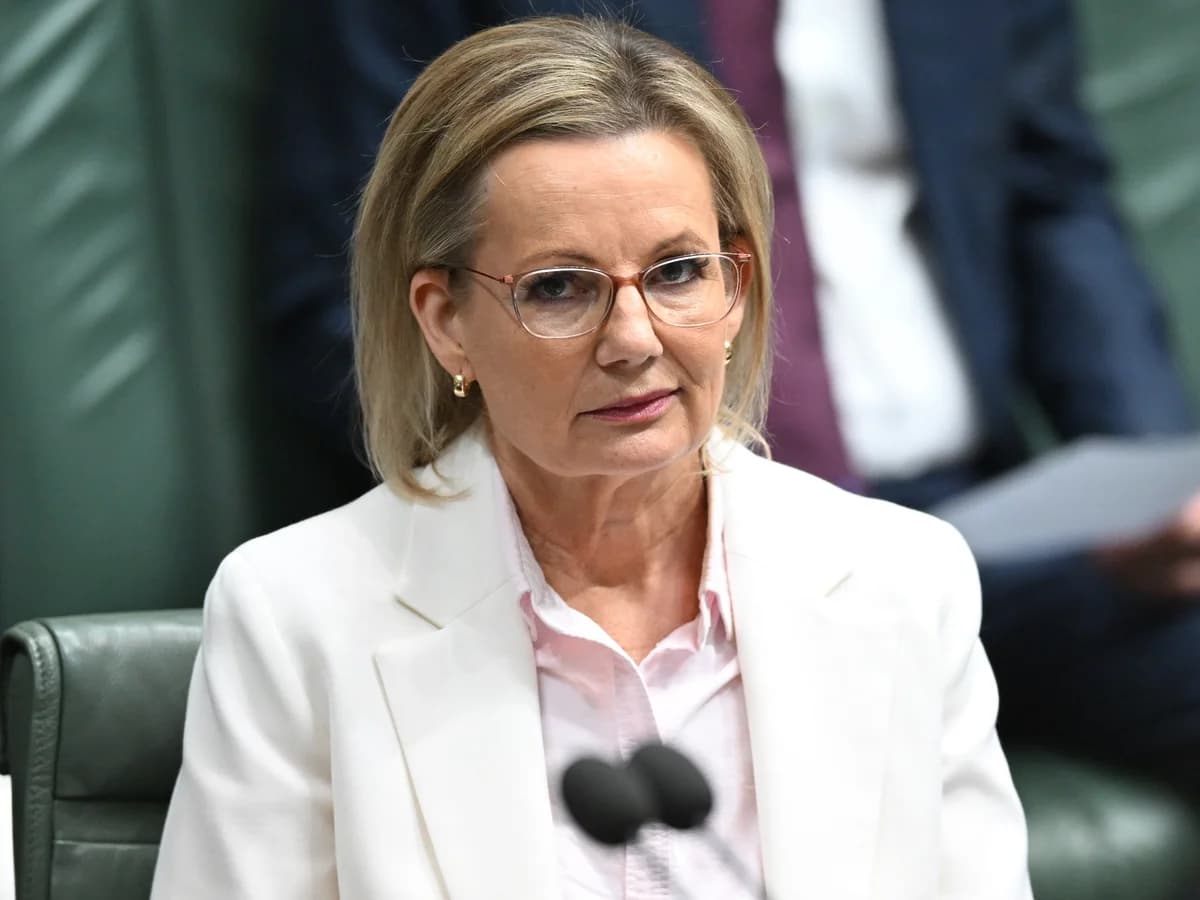We're loading the full news article for you. This includes the article content, images, author information, and related articles.
A fierce internal battle threatens to split Australia's opposition Coalition, a development with potential implications for global climate policy and investor confidence that could reverberate from Canberra to key trading partners, including Kenya.

Australia’s main opposition Liberal Party is engulfed in a deepening internal conflict over its commitment to a net zero emissions target by 2050, following a decision by its junior coalition partner, the Nationals, to abandon the climate goal. The move, finalised in a unanimous party room meeting on Sunday, 2 November 2025, has intensified pressure on Liberal leader Sussan Ley, creating a significant policy rift that threatens the stability of the long-standing political alliance and has sparked warnings of severe electoral consequences.
The Nationals, who primarily represent rural and regional interests, argue that the net zero target is economically damaging, citing rising energy costs and job losses. Nationals Leader David Littleproud stated the party would instead advocate for tying Australia's emissions reduction efforts to the average of similar OECD countries and focus on climate adaptation. This decision has been met with sharp criticism from the ruling Labor government, with Climate Change Minister Chris Bowen accusing the Nationals of betraying regional Australia, which stands to gain from renewable energy projects.
The Nationals' withdrawal has forced the Liberal Party into a difficult position, exposing a stark divide between its moderate and conservative factions. A special party room meeting is expected within the fortnight to resolve the party's stance. Senior conservatives, including Angus Taylor and Michaelia Cash, are reportedly urging Ley to follow the Nationals and scrap the target to maintain Coalition unity. However, moderate Liberals have launched a vocal campaign to retain the policy, warning that abandoning it would be electorally “toxic” in city seats and damage Australia's international reputation.
Former Liberal Party president Jason Falinski warned that ditching the commitment would be seen as “rewarding standover tactics” by the Nationals and would signal to young Australians that the party has “given up” on a critical issue. Falinski, who was NSW Liberal party president from 2023 to 2024, argued the party's problem at the last election was not running as “Labor-lite” but as “Nationals-lite”. Similarly, moderate Senator Andrew Bragg has argued that abandoning the Paris Agreement, which underpins the net zero goal, would turn Australia into a “pariah state”.
Australia, a signatory to the Paris Agreement, has a legislated target to reduce emissions by 43% below 2005 levels by 2030 and achieve net zero by 2050. The current Labor government has also set a 2035 target to cut emissions by 62-70%. A reversal of this commitment by a potential future government could have significant international ramifications. The Climate Council, an Australian non-profit, warns that abandoning the target would be aligned with global temperature rises well above 3°C, leading to more extreme weather events and deterring investment in the clean energy sector. It could also strain relationships with Pacific nations, who are particularly vulnerable to climate change.
For Kenya and the East Africa region, the debate in Australia carries indirect but notable significance. Australia and Kenya share a 60-year diplomatic relationship, with recent discussions in Nairobi on Wednesday, 13 October 2025, between Foreign Affairs Cabinet Secretary Musalia Mudavadi and Australian Assistant Minister Matt Thistlethwaite focusing on strengthening cooperation in areas including trade, mining, and climate action. Kenya is seeking to elevate this relationship to an Economic Partnership Agreement. A significant shift in Australia's climate policy could impact its international standing and influence its partnerships on climate-related initiatives. Australia has previously supported climate programs in the region, including the System for Land Based Emissions Estimation in Kenya (SLEEK), a national carbon accounting system. Furthermore, Australia has committed A$76.4 million to a six-year program to bolster climate resilience and food security in Africa. A change in its domestic climate ambition could affect the prioritisation and funding of such international climate finance commitments, which are crucial for developing nations facing the brunt of climate change.
As the Liberal Party prepares for its decisive meeting, the outcome will not only shape Australia's domestic political landscape and its approach to the global challenge of climate change but will also be closely watched by its international partners, including those in East Africa who rely on a stable and predictable global commitment to climate action.
Keep the conversation in one place—threads here stay linked to the story and in the forums.
Sign in to start a discussion
Start a conversation about this story and keep it linked here.
Other hot threads
E-sports and Gaming Community in Kenya
Active 9 months ago
The Role of Technology in Modern Agriculture (AgriTech)
Active 9 months ago
Popular Recreational Activities Across Counties
Active 9 months ago
Investing in Youth Sports Development Programs
Active 9 months ago